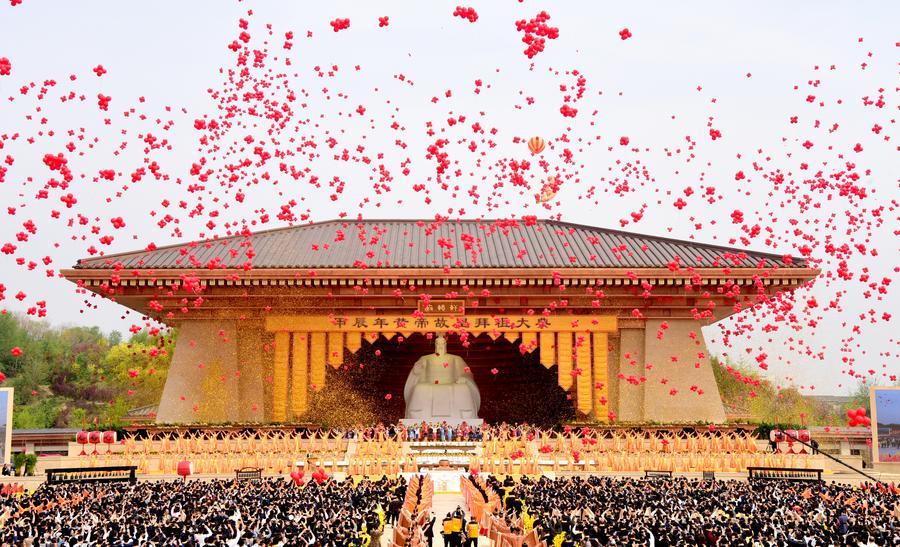еҸӮиҖғж¶ҲжҒҜ

Chinese people pay tributes to legendary ancestor

This photo taken on April 11, 2024 shows a view of a ceremony to worship the legendary ancestor Huangdi in Xinzheng City, central
Approximately 5,000 Chinese people attended a grand ceremony on Thursday morning in central China's Henan Province to worship the legendary ancestor Huangdi, or the Yellow Emperor.
Held in Xinzheng City, the ceremonial rituals included firing salute cannons, presenting flower baskets, burning incense, a worshipping ceremony, and tributes through music and dance.
Sixty-four dancers performed Bayi, an iconic ceremonial dance in ancient China, while 99 Chinese zither players sat around, playing melodious ancient music.
"The ancestral worship ceremony is an important ritual in Chinese traditional culture, which showcases the profound cultural heritage, solidarity and progressive spirit of the entire Chinese nation," said Wang Runze, deputy head of the School of Journalism and Communication, Renmin University of China.
The ceremony was conducted simultaneously both on-site and online, allowing for wider participation and engagement.
In addition to the ceremony, numerous other activities were arranged, such as a merchants' conference, a cultural forum, and the start of a dedicated cultural week celebrating Huangdi.
March 3 on the Chinese lunar calendar, which fell on Thursday this year, is widely believed to be the birthday of Huangdi.
As a legendary common ancestor of the Chinese people, Huangdi was believed to have been born in the county-level city of Xinzheng, which is administered by the provincial capital Zhengzhou.
Xinzheng annually hosts grand ancestral worship ceremonies, initially organized spontaneously by local residents.
However, in the 1990s, the Xinzheng city government took the initiative to organize and promote these ceremonies, gradually elevating them into culturally significant events with widespread domestic and international influence.
Worshipping Huangdi is a tradition in China. The ceremony of ancestor worship in Huangdi's hometown was listed as a national intangible cultural heritage in 2008.













